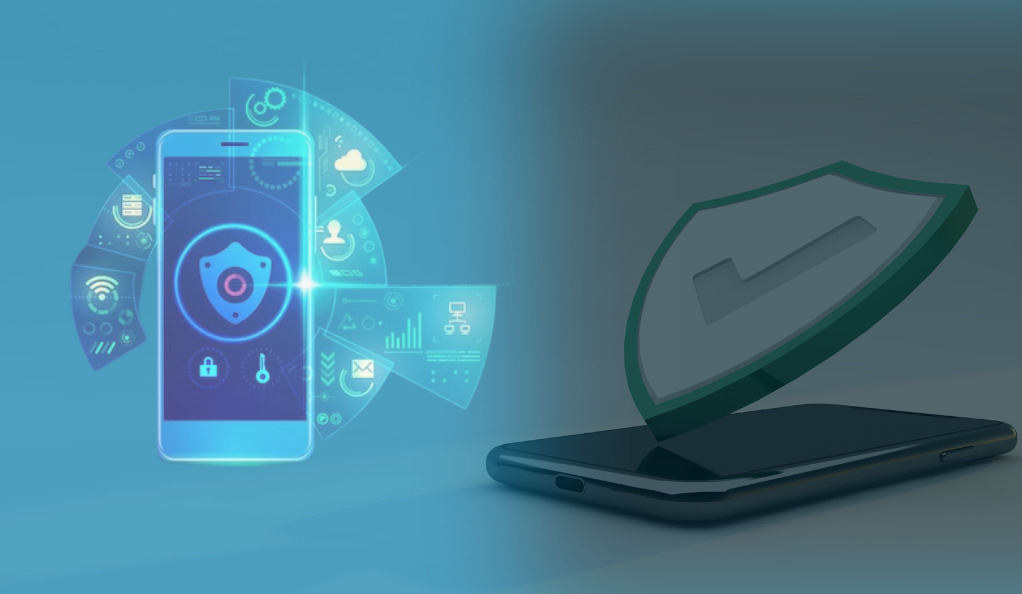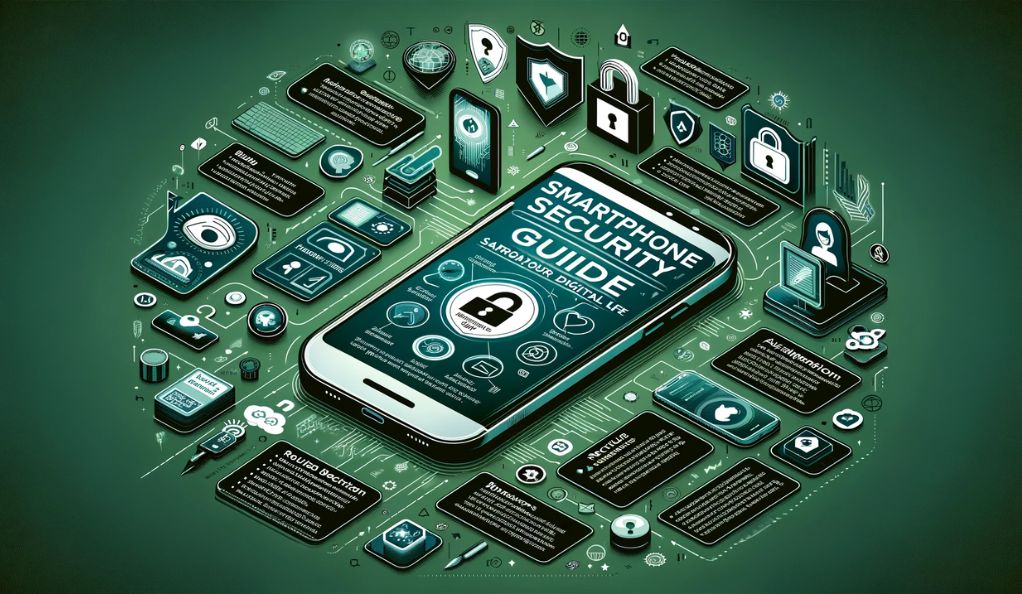In the midst of the rapidly evolving digital revolution, our dependency on mobile devices has grown exponentially. These compact yet powerful gadgets have transitioned from being mere tools of communication to becoming indispensable assets in our day-to-day routines. They have had a profound impact on our lives, shaping how we interact with the world around us. We now live in an age where we rely on these devices to facilitate an array of tasks. From managing our finances through an array of banking apps to fostering social interactions via numerous social media platforms, mobile devices have become an integral part of our lives. Indeed, the modern world would be unimaginable without the convenience offered by these technological marvels. However, this convenience is not without its fair share of pitfalls. As we entrust more of our personal and sensitive information to these devices, we expose ourselves to a multitude of security threats.
Often overlooked, our digital footprints can be exploited by cybercriminals through various threats like viruses and ransomware, risking our personal and financial data. These criminals are no longer individuals but sophisticated networks, exploiting the internet’s vulnerabilities. With the rise in mobile users, mobile cyberattacks have surged by 50% in the past year, emphasizing the need for potent mobile security solutions. As cyber threats evolve, so should our defenses. We urgently require advanced anti-malware software, stringent encryption methods, and enhanced intrusion detection systems. As we embrace the convenience of mobile devices, we must also be aware of potential risks. In this digital age, prioritizing mobile security isn’t a trend, but a necessity. Proactive cybersecurity measures are necessary to leverage the digital revolution while safeguarding our personal and financial data.
Overview of Mobile Security
Mobile security, at its core, is the protection of smartphones, tablets, and other portable devices from threats and vulnerabilities. This includes malware, phishing attacks, spy apps, and even physical theft. With over 5 billion smartphone users worldwide, the potential for security breaches is immense.
Mobile Threat Landscape (2022-2023)
| Threat Type | Description | Estimated Incidents in 2023 |
|---|---|---|
| Malware | Malicious software designed to harm or exploit devices. | 2.5 million |
| Phishing Attacks | Fraudulent attempts to obtain sensitive information. | 1.8 million |
| Spy Apps | Applications that secretly monitor and gather user data. | 1.2 million |
| Device Theft | Physical theft of the device leading to data compromise. | 900,000 |
The table above provides a snapshot of the mobile threat landscape for 2023. It’s evident that malware continues to be the most prevalent threat, but other forms of attacks are not far behind.
Traditional security measures, such as password protection and device encryption, are no longer sufficient. Today, users need a multi-layered approach to security—one that not only detects and removes threats but also proactively guards against new and emerging risks.
Why Mobile Security is More Important Than Ever

The digital landscape, encompassing the Internet, applications, and various online services, has witnessed an extraordinary surge at a previously unimaginable velocity. This swift diffusion of digital technologies has dramatically transformed our lifestyle, work environment, and communication methods. Among these, mobile devices such as smartphones and tablets play a pivotal role. They have become the main conduit to the digital realm for a significant majority of global individuals, from bustling metropolises to secluded corners of the Earth, inspiring a profound dependency on these devices for a wide range of tasks – from commerce, banking, and education to social interaction and entertainment. The convenience presented by these compact yet potent devices is indeed unmatched.
Mobile devices keep us connected, informed, and allow easy access to services. However, their increasing use also brings substantial security risks, with a rise in threats like harmful software, phishing attacks, and data theft. Cybercriminals constantly create new ways to exploit mobile devices and their networks, often targeting sensitive data, causing concern among users and regulators. The threats increase because mobile devices are always active and contain a lot of personal and professional data, making them attractive targets. Their portability and frequent use on unsecured public networks also increase vulnerability. While mobile devices have brought many benefits, they’ve also introduced new security challenges. As reliance on mobile technology grows, so does the need for strong security measures to protect these devices and their data. Collaboration among users, manufacturers, and regulators is crucial to prevent data breaches and identity theft.
A Surge in Mobile Malware and Cyberattacks
Recent years have witnessed a significant increase in mobile-specific malware. These malicious entities are designed to exploit vulnerabilities in mobile operating systems, apps, and even hardware. From ransomware that locks users out of their devices to trojans that steal financial information, the variety and complexity of mobile malware are continually evolving.
Real-world Consequences of Mobile Breaches
The implications of a mobile security breach can be severe:
- Personal Data Exposure: Once malware infiltrates a device, it can access a treasure trove of personal data, including contacts, emails, photos, and more.
- Financial Loss: Many people use their mobile devices for banking and shopping. Malware can capture login credentials, leading to unauthorized transactions or identity theft.
- Reputation Damage: A compromised device can be used to send spam or malicious links to contacts, damaging personal and professional relationships.
- Loss of Device Functionality: Some forms of malware can render a device unusable, forcing the user to perform a factory reset or even purchase a new device.
The Growing Sophistication of Threats
Cybercriminals are becoming more adept at crafting threats that evade detection. For instance, some malware can recognize when it’s being analyzed in a security lab and will alter its behavior to appear benign. Others employ techniques like code obfuscation to hide their true intent.
The Role of User Behavior
While external threats are a significant concern, user behavior also plays a crucial role in mobile security. Simple actions, such as downloading apps from unverified sources or clicking on suspicious links, can expose a device to threats. Educating users about safe mobile practices is just as vital as equipping them with the right security tools.
The landscape of mobile security is intricate and ever-changing. As we delve deeper into the world of mobile security software, we’ll explore how these tools are equipped to handle the challenges of today’s threat environment and which ones stand out in their defense capabilities.
Criteria for Evaluating Mobile Security Software
Choosing the right mobile security software is crucial, but with a myriad of options available, making an informed decision can be daunting. To simplify the process, it’s essential to understand the key criteria that should guide your choice.
1. Features and Functionalities
A comprehensive mobile security solution should offer a range of features to address various threats:
- Real-time Scanning: Continuous monitoring of the device for potential threats.
- Web Protection: Shields against malicious websites and phishing attempts.
- Firewall: Monitors incoming and outgoing traffic to prevent unauthorized access.
- Anti-Theft Measures: Tools like remote lock, data wipe, and device location.
- Privacy Tools: Features that scan apps for excessive permissions or potential data breaches.
2. User-friendliness and Interface
A security software’s effectiveness is partly determined by its ease of use. Users are more likely to engage with and benefit from tools that offer a clear, intuitive interface. The software should provide straightforward navigation, easy-to-understand settings, and accessible help resources.
3. Performance and Resource Consumption
While security is paramount, it shouldn’t come at the cost of device performance. The ideal software operates efficiently, without consuming excessive battery or slowing down the device. Quick scan times and minimal background processes are indicators of well-optimized software.
4. Pricing and Value for Money
Cost is a significant factor for many users. While free options might be tempting, they often come with limitations. It’s essential to weigh the features offered against the price to determine the software’s value. Additionally, consider the flexibility of subscription plans and any additional benefits, such as multi-device coverage or bundled services.
Understanding these criteria provides a foundation for evaluating the myriad of mobile security software options available. In the following sections, we’ll delve into specific software solutions, assessing how they measure up against these standards and offering insights to help you make the best choice for your mobile security needs.
Overview of Top Mobile Security Software in 2023

The mobile security software market is vast, with numerous players offering a range of features and capabilities. Here, we’ll introduce some of the top contenders that have garnered attention in 2023, setting the stage for a more in-depth comparison in subsequent sections.
Norton Mobile Security
A household name in the cybersecurity industry, Norton brings its extensive experience to the mobile arena. Known for its robust malware detection capabilities, Norton Mobile Security also offers a suite of anti-theft tools and web protection features.
- Performance Impact: Norton is optimized for minimal resource consumption, ensuring smooth device operation even during full scans.
- Battery Consumption: Users report minimal battery drain, making it suitable for continuous protection without compromising device longevity.
TotalAV Mobile Security
TotalAV has made significant strides in recent years, emerging as a top choice for many users. Its mobile security solution boasts a user-friendly interface, efficient performance, and a comprehensive set of features, including a secure browser and VPN.
- Performance Impact: TotalAV is lightweight, with efficient scanning processes that don’t bog down the device.
- Battery Consumption: The software is designed for efficiency, with adaptive scanning modes that reduce battery usage when the device is not charging.
McAfee Mobile Security
McAfee’s mobile security software is a comprehensive tool that provides real-time protection against malware and phishing attacks. With added features like memory optimization and privacy checks, it offers a well-rounded security solution for mobile users.
- Performance Impact: McAfee strikes a balance between thorough protection and performance, with optimization features that prevent slowdowns.
- Battery Consumption: While offering real-time protection, McAfee’s adaptive algorithms ensure that battery consumption remains moderate.
Bitdefender Mobile Security
Bitdefender is renowned for its top-notch malware detection rates. Its mobile security software is no exception, providing robust protection without draining device resources. Additional features like account privacy and web protection make it a strong contender in the market.
- Performance Impact: Known for its lightweight design, Bitdefender ensures rapid scans without compromising device speed.
- Battery Consumption: The software’s cloud-based scanning approach reduces the load on the device, leading to minimal battery drain.
Kaspersky Internet Security for Android
Kaspersky’s offering for Android devices is a blend of performance and protection. With features like anti-phishing, app lock, and anti-theft tools, it ensures that users’ devices and data remain secure from various threats.
- Performance Impact: Kaspersky’s advanced optimization ensures that even in-depth scans are swift, with minimal impact on device performance.
- Battery Consumption: With features like energy-saving mode, Kaspersky ensures that security doesn’t come at the cost of battery life.
Each of these software solutions brings its unique strengths to the table. In the sections that follow, we’ll dive deeper into their features, performance, and overall value, providing a clearer picture of which might be the best fit for your specific needs and preferences.
In-depth Comparison
To truly understand the strengths and weaknesses of each mobile security software, we need to compare them across various parameters. This section will provide a detailed analysis, shedding light on how each software fares in real-world scenarios.
Malware Detection and Removal
- Norton Mobile Security: Known for its robust detection capabilities, Norton consistently identifies and quarantines threats with minimal false positives.
- TotalAV Mobile Security: With an extensive malware database, TotalAV offers reliable detection, though it occasionally flags benign apps as potential threats.
- McAfee Mobile Security: McAfee boasts a high detection rate, especially for zero-day threats, ensuring users are protected from even the newest malware variants.
- Bitdefender Mobile Security: Bitdefender’s advanced heuristics and cloud-based scanning provide top-tier malware detection and swift removal.
- Kaspersky Internet Security for Android: Kaspersky’s multi-layered approach ensures thorough malware detection, with a particular emphasis on ransomware threats.
Web Protection
- Norton Mobile Security: Norton’s Safe Web feature warns users of malicious websites, effectively reducing the risk of phishing attacks.
- TotalAV Mobile Security: The secure browser feature ensures safe browsing, though it occasionally flags legitimate sites.
- McAfee Mobile Security: McAfee’s web protection is comprehensive, offering real-time alerts for suspicious sites and blocking malicious downloads.
- Bitdefender Mobile Security: With its real-time web filtering, Bitdefender offers robust protection against phishing and malicious sites.
- Kaspersky Internet Security for Android: Kaspersky’s web protection is known for its accuracy, ensuring users are safe from web-based threats without hindering their browsing experience.
Privacy Features
- Norton Mobile Security: Norton offers an App Advisor feature, which scans apps for potential privacy risks, ensuring users are aware of any data-sharing concerns.
- TotalAV Mobile Security: The app’s privacy overview feature provides insights into app permissions, helping users make informed decisions.
- McAfee Mobile Security: McAfee’s privacy check feature scans and categorizes apps based on the data they access, offering users a clear picture of potential risks.
- Bitdefender Mobile Security: Bitdefender’s account privacy feature alerts users if their email accounts are involved in any data breaches.
- Kaspersky Internet Security for Android: Kaspersky’s privacy protection tools, including its app lock feature, ensure that users’ data remains secure and private.
This comparison provides a snapshot of how each software performs in key areas. However, the true test of a security solution lies in its overall user experience, performance impact, and value proposition, which we’ll explore in the upcoming sections.
User Experience and Interface
The best security features are of little use if they’re not accessible and user-friendly. Here, we’ll evaluate how each software fares in terms of user experience and interface design.
| Software | Interface | User Feedback |
|---|---|---|
| Norton Mobile Security | Sleek and modern; intuitive with clearly labeled features and easy navigation. | Most users appreciate the straightforward setup and helpful tutorials. |
| TotalAV Mobile Security | Clean and organized; features categorized for easy access. | Commended for its simplicity; some desire more customization options. |
| McAfee Mobile Security | User-centric design; dashboard provides a quick overview of security status. | Generally well-received; users highlight the intuitive layout and helpful tips. |
| Bitdefender Mobile Security | Minimalist design; ensures core features are easily accessible without overwhelming users. | Positive feedback on its unobtrusive nature and ease of adjusting settings. |
| Kaspersky Internet Security for Android | Functional and aesthetically pleasing; clear focus on user accessibility. | Users praise the organized layout and clarity of information presented. |
The Verdict: Which Software Reigns Supreme?

With a plethora of options available, choosing the right mobile security software can be a daunting task. Each of our top contenders brings its unique strengths to the table. Here’s a summary of our findings:
Norton Mobile Security
- Strengths: Comprehensive protection, user-friendly interface, and a reputable brand name.
- Best For: Users seeking a well-rounded solution with a balance of features and performance.
TotalAV Mobile Security
- Strengths: Efficient performance, a wide range of features, and periodic promotional offers.
- Best For: Those looking for a modern interface with added benefits like a VPN.
McAfee Mobile Security
- Strengths: Robust protection, adaptive algorithms, and a strong focus on user privacy.
- Best For: Users who prioritize privacy features and a holistic security approach.
Bitdefender Mobile Security
- Strengths: High malware detection rates, minimal performance impact, and competitive pricing.
- Best For: Budget-conscious users who don’t want to compromise on quality.
Kaspersky Internet Security for Android
- Strengths: Advanced security features, user-centric design, and loyalty discounts.
- Best For: Tech-savvy users seeking a comprehensive security suite with a focus on web protection.
Conclusion and Future Outlook
In today’s dynamic digital landscape, the importance of robust mobile security cannot be overstated. With a plethora of options available, choosing the right security software hinges on individual needs, budget, and device usage patterns. Each solution, from Norton to Kaspersky, offers unique strengths, catering to different user preferences. Whether it’s a sleek interface, user feedback, or specific features, understanding these nuances is crucial for making an informed decision.
Looking ahead, the mobile security domain is poised for further evolution. The integration of advanced technologies like artificial intelligence promises even more refined protection. As threats become more sophisticated, staying updated and proactive with security measures is paramount. Users are encouraged to remain vigilant, ensuring their devices are safeguarded against the ever-growing array of digital threats.








